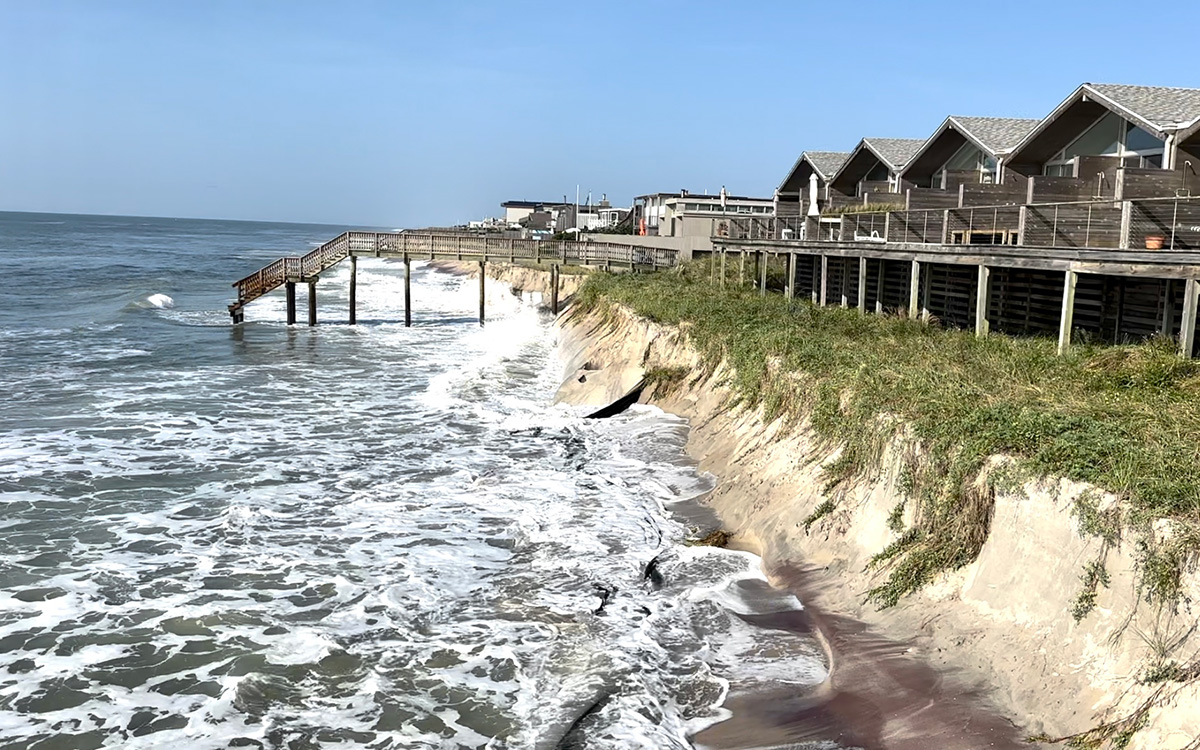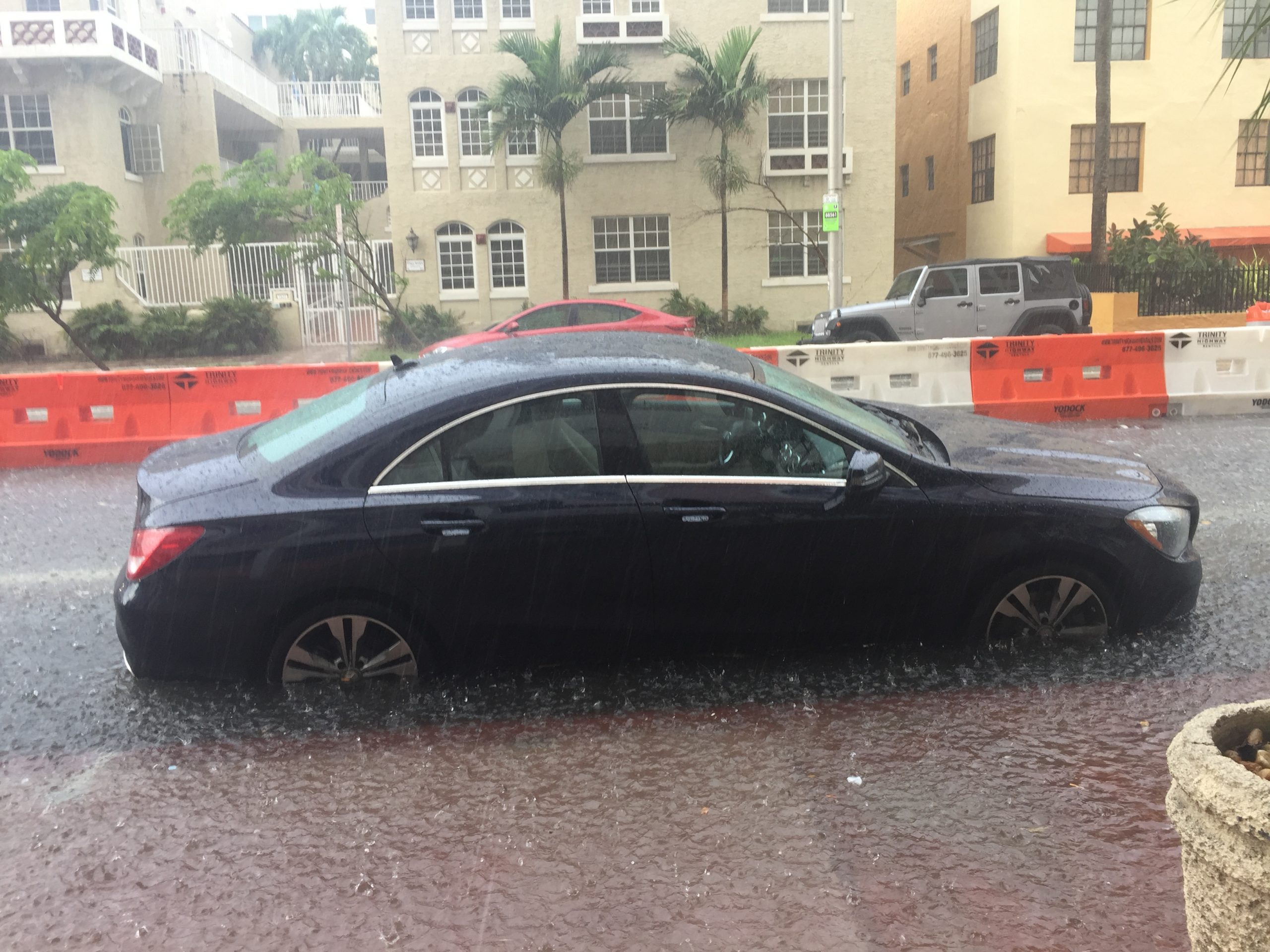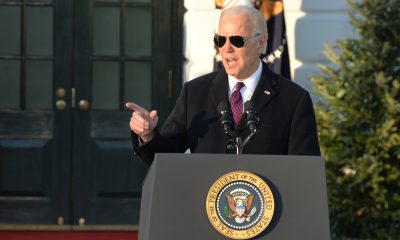National
Climate change threatens LGBTQ resort communities
Provincetown, Cape Cod, other destinations face ‘existential’ challenge

As the world reckons with worsening impacts of climate change, some LGBTQ communities and destinations are grappling with the “existential” threat posed by the crisis.
The United Nations’ annual climate conference will take place in the United Arab Emirates through Dec. 12. LGBTQ climate activists, however, are concerned about representation at COP28 because the meeting is taking place in Dubai, which is in a country that criminalizes consensual same-sex sexual relations.
President Joe Biden on Nov. 14 delivered a statement on climate change policy during his administration. Biden spoke on the American Rescue Plan, the Fifth National Climate Assessment, new transparency about the state of the country’s climate and more.
Biden emphasized “advancing environmental justice for disadvantaged communities, because they’re the ones always left behind.” Evidence of this trend can be found in LGBTQ destinations across the country.
Julian Cyr, a gay Massachusetts state senator who represents Provincetown and other towns on Cape Cod, recognizes the state’s importance to the LGBTQ community, stating that “according to the Census, it may be the highest per capita density of LGBTQ+ people certainly in the United States, and perhaps internationally.”
Provincetown, a popular gay destination located at the tip of Cape Cod, is facing worsening storms as climate change advances. These storms reshape the natural environment as well as damage the built environment. A series of Nor’easters in 2018 flooded Provincetown, damaging homes, businesses and the town hall.
“The climate crisis is … already forcing us to do a lot of planning and reevaluation of coastal resilience of our built environment,” said Cyr.
All hope isn’t lost yet for Massachusetts destinations.
Then-Gov. Charlie Baker, a Republican, in 2022 introduced the Climate Roadmap, which aims for zero carbon emissions by 2050. The state also is building the country’s first offshore wind farm, Vineyard Wind.
Cyr said citizens can push for climate change legislation by making the urgency known to their local elected officials.
“This is truly existential for coastal, low-lying communities like those that I represent,” said Cyr. “It’s really important that constituents weigh in with their elected officials and make sure that they know that this issue is crucially important. I don’t know how we not solve this issue.”
Experts are seeing similar effects in nearby LGBTQ destinations, such as Cape Cod.
“One thing that we do see already is the effect of storms,” said Mark Adams, a retired Cape Cod National Seashore cartographer. “Those storms are the signal of sea level rise.”
Adams said that as a result of rising temperatures and new, intense storms, he is also starting to see damaged ecosystems, unnatural migration patterns of local wildlife, and planting-zones moving northward. Adams told the Washington Blade these changing ecological relationships may mean an uncertain future for life along the coast: the self-sustaining lifestyle and seafood could be at risk as ocean acidification puts shellfish in danger.
“If you can’t get oysters and clams, that would really change life on Cape Cod,” he said.
In addition to the damage caused by storms, Cape Cod’s natural environment is also facing the threat of littering and plastic pollution. While the area’s beaches keep tourism alive, fishing gear and marine debris washing up on the shore are growing concerns for the community.
Adams said this is where the choices individuals make to avoid plastics will make a huge difference in the future of these communities.
“There are little choices we can make to get off of the petroleum stream,” he said.

Aspen Gay Ski Week adapts to warmer winters
Aspen Gay Ski Week was the first gay ski week, and it is the largest such event in the world, and is the only non-profit gay ski week.
Rising temperatures and short winters are growing concerns for destinations like Aspen, Colo., that depend on snow, according to AspenOUT Executive Director Kevin McManamon.
“As our seasons get shorter … we have to plan for the future,” McManamon said.
Colorado has also faced increased forest fires in recent years.
The Marshall Fire in 2021 devastated the state, destroying buildings and killing two people. Increasingly dry conditions feed into these fires, which will mean more impacts on humans, nature, and infrastructure.
McManamon nevertheless said he is optimistic about Aspen Gay Ski Week’s future due to the organization’s forward thinking. One such initiative is its involvement with Protect Our Winters, an organization that advocates for protecting the environment with the support of the outdoor sports community.
“The cool part about being here in Aspen and having a great relationship with Aspen Skiing Company is that they are … on the leading edge of climate change,” said McManamon.
Stronger storms threaten Fire Island
Fire Island Pines on New York’s Fire Island has been a safe haven for the LGBTQ community since the 1950s.
Fire Island Pines Property Owners’ Association President Henry Robin notes natural disasters cause more damage in the community as opposed to those that are across the Great South Bay on Long Island because Fire Island is a “barrier island.”
“When Superstorm Sandy hit, or when a Nor’easter hits, or a hurricane hits, the brunt of the storm is first taken by the Pines,” said Robin.
Robin said “the Pines is thriving” just over 11 years since Sandy, but there is no climate change response. The federal government implemented a beach restoration project for Fire Island, and later, the U.S. Army Corps of Engineers created an engineered beach for the Pines.
Robin also formed three task forces — comprised of community members — to address local concerns, many of which were climate related, according to focus groups and a survey. Robin is also hoping to introduce recycling programs and solar energy to the Pines.
U.S. Supreme Court
Concern over marriage equality in US grows two decades after first Mass. same-sex weddings
Gay and lesbian couples began to marry in Bay State in 2004

Two decades after Massachusetts became the first state to legalize same-sex marriage, a new study reveals both significant progress and ongoing challenges for married LGBTQ couples in the U.S., with a growing sense of insecurity about the future of their rights.
The Williams Institute at UCLA School of Law surveyed 484 married same-sex couples from all 50 states and D.C. The study, released Monday, marks the 20th anniversary of legal same-sex marriage in the U.S.
Researchers found that 93 percent of respondents cited love as a primary reason for marrying, with 75 percent also mentioning legal protections. Over 83 percent reported positive changes in their sense of security, and 74.6 percent noted improved life satisfaction since marrying.
However, the study also highlighted persistent discrimination and growing concerns about the future. About 11 percent of couples who had a wedding reported facing prejudice during the planning process.
Alarmingly, nearly 80 percent of respondents expressed concern about the potential overturning of the 2015 Obergefell v. Hodges decision, which legalized same-sex marriage nationwide. This anxiety has been exacerbated by initiatives like Project 2025, a conservative policy blueprint that some fear could roll back LGBTQ rights if implemented.
The possibility of a former President Donald Trump victory in the upcoming election has further intensified these concerns. Many respondents cited Trump’s previous U.S. Supreme Court appointments and his statements on LGBTQ issues as reasons for their apprehension. One participant stated, “The thought of another Trump presidency keeps me up at night. We’ve come so far, but it feels like our rights could be stripped away at any moment.”
The current political climate has 29 percent of respondents considering moving to another state, with 52.9 percent citing socio-political concerns as a primary reason. This reflects a growing sense of insecurity among LGBTQ couples about their rights and freedoms.
Brad Sears, founding executive director of the Williams Institute, noted, “The data clearly show that marriage equality has had a profound positive impact on same-sex couples and their families. However, it also reveals ongoing challenges and serious concerns about the future of these rights in light of current political trends and the upcoming election.”
Christy Mallory, legal director at the Williams Institute and lead author of the study, added, “This research provides crucial insights into the lived experiences of same-sex couples two decades after marriage equality began in the U.S. The high level of concern about potential loss of rights underscores the continued importance of legal protections and public support for LGBTQ+ equality.”
The study found that 30 percent of surveyed couples have children, with 58.1 percent of those parents reporting that marriage provided more stability for their families. However, many of these families now worry about the security of their legal status in the face of potential policy changes and shifting political landscapes.
As the nation reflects on two decades of marriage equality, the study underscores both the transformative power of legal recognition and the ongoing need for vigilance in protecting LGBTQ+ rights. The findings highlight the complex reality faced by same-sex couples in America today: Celebrating hard-won progress while grappling with uncertainty about the future, particularly in light of upcoming political events and potential shifts in leadership.
State Department
State Department hosts meeting on LGBTQ rights and foreign policy
Event took place before Pride Month reception

Secretary of State Antony Blinken on Thursday hosted a group of LGBTQ activists and politicians from around the world at the State Department.
The event — described as a “Convening on U.S. Foreign Policy: National Security, Inclusive Development, and the Human Rights of LGBTQI+ Persons” — took place before the State Department’s annual Pride Month reception. Participants included:
• Jessica Stern, the special U.S. envoy for the promotion of LGBTQ and intersex rights
• U.S. Ambassador to the U.N. Linda Thomas-Greenfield
• U.S. Trade Representative Katherine Tai
• U.S. Ambassador to India Eric Garcetti
• Suzanne Goldberg, senior advisor to the Under Secretary of State for Civil Security, Democracy, and Human Rights
• Under Secretary of State for Civilian Security, Democracy, and Human Rights Uzra Zeya
• U.S. Agency for International Development Senior LGBTQI+ Coordinator Jay Gilliam
• USAID Counselor Clinton D. White
• National Security Council Senior Director for Democracy and Human Rights Kelly Razzouk
• Assistant U.S. Secretary of Health Adm. Rachel Levine
• National Security Council Human Rights Director Jess Huber
• U.N. Assistant Secretary General for Human Rights Ilze Brandt Kehris
• Icelandic Ambassador to the U.S. Bergdís Ellertsdóttir
• Council for Global Equality Co-Executive Director Mark Bromley
• Outright International Senior Advisor for Global Intersex Rights Kimberly Zieselman
• Essy Adhiambo, executive director of the Institute for Equality and Non Discrimination in Kenya
• Pau González, co-chair of Hombres Trans Panamá and PFLAG-Panamá
“Forty-five years ago, thousands gathered in D.C. in what became the first national march for LGBTQI+, demanding their voices be heard,” said Thomas-Greenfield in a post to her X account that showed her speaking at the event. “We must continue to carry forward the spirit of these pioneers and fight for equal rights and dignity for all.”
Forty-five years ago, thousands gathered in DC in what became the first national march for LGBTQI+, demanding their voices be heard.
We must continue to carry forward the spirit of these pioneers and fight for equal rights and dignity for all. 🏳️🌈🏳️⚧️ pic.twitter.com/oph2Ahmfhq
— Ambassador Linda Thomas-Greenfield (@USAmbUN) June 28, 2024
President Joe Biden in 2021 signed a memo that committed the U.S. to promoting LGBTQ and intersex rights abroad as part of his administration’s overall foreign policy.
“LGBTQI+ rights are human rights,” said Blinken. “Our government has a responsibility to defend them, to promote them — here and everywhere.”
Blinken noted consensual same-sex sexual relations remain criminalized in 64 countries, with the death penalty in 11 of them.
He specifically highlighted Uganda’s Anti-Homosexuality Act and Hungarian Prime Minister Viktor Orbán’s government’s “smearing scapegoating, stigmatizing LGBTQI+ persons — vilifying them with degrading labels, denying them equal rights, normalizing violence against them.” (Gay U.S. Ambassador to Hungary David Pressman this month marched in the annual Budapest Pride parade.)
Blinken noted Iraqi MPs earlier this year “passed legislation that punishes same-sex relations with up to 15 years in prison.” He also pointed out that Indonesian lawmakers approved a new criminal code banning extramarital sex.
“In a nation where same-sex couples cannot marry, these laws effectively make all same-sex conduct illegal and they undermine privacy for all Indonesians,” said Blinken.
“We’re defending and promoting LGBTQI+ rights around the world,” he said.
Blinken noted seven countries — Barbados, St. Kitts and Nevis, Antigua and Barbuda, Dominica, Namibia, Singapore, the Cook Islands — have decriminalized consensual same-sex sexual relations over the last two years. He also highlighted Greece, Liechtenstein, and Thailand this year extended marriage rights to same-sex couples, and other countries are banning so-called “conversion therapy.”
“These achievements are possible because of incredibly courageous human rights defenders and government partners on the ground, but I believe America’s support is indispensable,” said Blinken. “When we engage — sometimes publicly, sometimes privately, sometimes both — when we share our own knowledge and experience, we can and we do achieve change.”
Blinken also announced the U.S. now considers sexual orientation and gender identity are part of the International Covenant on Civil and Political Rights that took effect in 1976.
“This is one of the key treaties committing nations to upholding universal rights,” he said.
“In our regular reporting to the council on human rights, we will continue to include incidents of discrimination or abuse committed against LGBTQI+ persons, now with the clear framework of this well-supported interpretation,” added Blinken. “That will further empower our efforts.”
Blinken reiterated this point and the Biden-Harris administration’s commitment to the promotion of LGBTQ and intersex rights abroad when he spoke at the State Department’s Pride Month event.
“Defending, promoting LGBTQI+ rights globally is the right thing to do, but beyond that, it’s the smart and necessary thing to do for our country, for our national security, for our well-being,” he said.
The White House
Jill and Ashley Biden headline White House Pride celebration
First lady celebrated historic pardons of LGBTQ veterans

First lady Jill Biden and the president and first lady’s daughter, Ashley Biden, headlined the White House Pride celebration on the South Lawn on Wednesday, followed by a performance by singer and actress Deborah Cox.
“My dad has built the most pro-equality administration” in history, Ashley Biden said, crediting the work of LGBTQ people of color like Marsha P. Johnson, a prominent figure in the Stonewall uprising of 1969, as well as “so many of you [who] have continued to lead their fearless fighting against against injustice here and around the world.”
She introduced her mother as “the woman who taught me to be myself up showed me in so many ways how I can make a difference” and who “works every single day, tirelessly, to ensure that all people have the opportunities and freedoms that they deserve.”
“I hope that all of you feel that freedom and love on the South Lawn today,” Jill Biden said.
Her remarks were briefly interrupted by a protestor’s chants of “no Pride in genocide,” which was drowned out by chants of “four more years.”
The first lady noted how many of the attendees came “here from states that are passing laws targeting LGBTQ Americans.”
“There are those who see our communities and our families and wish to tear them down,” she said, “those who can’t see that the world is so much bigger and [more] beautiful than they know — but when our homes are threatened, when they strip away our rights, and deny our basic humanity, we say, ‘not on our watch.'”
“Pride is a celebration, but it is also a declaration,” the first lady said, highlighting the U.S. Supreme Court’s ruling in Obergefell v. Hodges nine years ago, which established marriage equality as the law of the land.
She then credited the accomplishments of the Biden-Harris administration on matters of LGBTQ rights, including the repeal of the previous administration’s ban on military service by transgender servicemembers and the FDA’s loosening of restrictions on blood donation by gay and bisexual men.
The first lady also celebrated the president’s announcement earlier on Wednesday that he will pardon LGBTQ veterans who were discharged and court martialed because of their sexual orientation or gender identity.
“We will never stop fighting for this community,” she said.

-

 Canada1 day ago
Canada1 day agoToronto Pride parade cancelled after pro-Palestinian protesters disrupt it
-

 Theater4 days ago
Theater4 days agoStephen Mark Lukas makes sublime turn in ‘Funny Girl’
-

 Baltimore3 days ago
Baltimore3 days agoDespite record crowds, Baltimore Pride’s LGBTQ critics say organizers dropped the ball
-

 Sports4 days ago
Sports4 days agoHaters troll official Olympics Instagram for celebrating gay athlete and boyfriend











